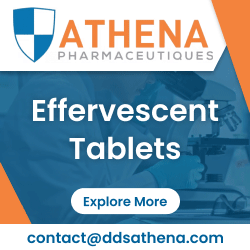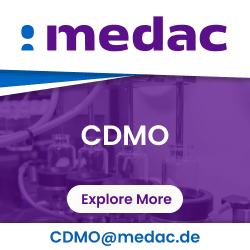Overview of solid state research contract preformulation services including polymorph & cocrystal screening, salt screening via DSC, TGA and XPRD.
Q1. What is polymorphism? Why is polymorph screening important?
Polymorphism is the ability for a single chemical entity to form two or more crystalline forms. In polymorphism, the molecules crystallize in different arrangements or conformations of the constituents in the crystal lattice. This phenomenon is very common to most pharmaceutical APIs.
Toxicology, efficacy and stability are important criteria when selecting an appropriate candidate for the pharmaceutical development of a drug substance. It is well known that polymorphs of the same substance can have dramatic differences in their solid state properties, such as solubility, dissolution rate, melting point, physical and chemical stability and micromeritic properties, and can often significantly impact the bioavailability and overall drug product performance.
Identifying the most appropriate solid form, typically the thermodynamically stable polymorph form, is a key element in the early pharmaceutical development process for a new drug candidate. Polymorph screening must be implemented during the pharmaceutical preformulation process starting from drug discovery to selection of polymorphs to presenting the results to the authorities to registering the drug and receiving permission to conduct clinical trials.
Polymorphism screening is important in pharmaceutical development (API development) due to various reasons:
- The majority of drug substances or active pharmaceutical ingredients (APIs) are produced by crystallization and hence the phenomenon of polymorphism (a molecule can adopt more than one crystalline form) is of considerable importance.
- Improvements in physicochemical properties can be achieved by altering the physical forms of a given pharmaceutical compound, such as polymorphs, solvates, amorphous, salts, pharmaceutical cocrystals, and/or hydrates, etc. that are used for solubility enhancement.
- Having a clear understanding of the polymorphism of a product is central to gaining US FDA approval of your NDA.
- Polymorphism is a key to patent strategy as different polymorphs can give rise to independent intellectual property (IP) claims. Polymorphic forms are subject to IP protection. Innovator companies identify polymorphs in the drug substance to protect the associated IP related to a new API and thus avoid premature competition from generic companies.
- Generic companies use possible gaps to avoid patent infringement and be as early as possible in a market.
- A product may not be a thermodynamically stable polymorph in its current polymorphic form and during formulation of the drug product or storage, it may transform to another polymorph, which could lead to rejection of the API and pharmaceutical products.
- Risks associated with the discovery of a new crystalline form (polymorphic form) at a later phase of development must be weighed against the possibility of the pharmaceutical compounds failing during development.
- The solubility difference between some polymorphs has been shown to be over four times that of the least soluble form and can vary significantly more for amorphous forms. Polymorphs (anhydrous and solvate/hydrate forms) may resolve low water solubility, which can cause bioavailability problems.
- This risk assessment requires both experience of solid state issues that can affect the performance of the drug substance and drug product and intimate knowledge of the drug substance and drug product processes.
- Generally, metastable forms are more soluble than the corresponding stable polymorphic forms, but they transform to the more thermodynamically stable polymorph form in a relatively short time and thus it is required to monitor transformation of polymorphic forms during formulation, manufacturing and storage of dosage forms to ensure reproducible bioavailability after administration.
Q2. How does polymorph impact the bioavailability and stability of poorly soluble drugs?
The phenomenon of polymorphism is quite common among organic molecules and many drugs can crystallize into different polymorphic forms. The different crystal packing of different polymorphs can affect many properties, such as solubility, bioavailability, conductivity, optical activity, thermal sensitivity, pressure sensitivity and colour.
There are various techniques used to enhance the solubility of poorly soluble drugs, including particle size reduction, crystal engineering, salt formation, solid dispersions, polymorphs and salt formation, etc. Polymorphs (anhydrous and solvate/hydrate forms) may resolve the bioavailability problems via enhancing the solubility, but by can be a challenge to ensure physicochemical stability for the entire shelf life of the pharmaceutical products.
Solubility is a key to the performance of pharmaceutical drugs because aqueous solubility is one of the major problems encountered during drug development. It leads to poor and variable oral bioavailability leading to variability in the clinical response. The polymorph shape influences its solubility. In the metastable form, when compared with the stable form, the stability of this form is less durable, but has better solubility. Hence, the polymorph with the lowest solubility is necessarily the most stable at the considered temperature.
It is generally advisable to formulate the most stable polymorph to avoid any transformation (dissolve and recrystallize as another polymorph characterised by a lower solubility) issues.
However, in the case of poorly soluble drugs, it may be desirable to produce a metastable form with a view to improving the bioavailability. The solubility of metastable polymorphs is kinetically higher than that of a thermodynamically more stable polymorph. Metastable forms tend to convert into the more thermodynamic stable form in a relatively short time. Theophylline anhydrate is a classic example which dissolves faster than its hydrate form.
Q3. What are the different types of solid form screening and what are the techniques used for it?
Solids exist as crystals, amorphous or subcooled liquids. The degree of crystallinity determines the long- range order in a solid phase. Improving the properties of active pharmaceutical ingredients by polymorph, salt and cocrystal screening is gaining attention nowadays.
Solid form screening, including salt, polymorph, co-crystal screening and amorphous solid dispersion screening, is vital for successful pharmaceutical development. Molecules when transferred from the solution to the solid phase may take many different crystal forms (polymorphs, solvates/hydrates, salts, co-crystals) with different pharmaceutical properties that can influence the bioavailability and stability of a drug substance.
Salt screening
Salt and co-crystal screening are reliable solutions in modern drug development to address some undesirable properties, such as low solubility, chemical instability and high hygroscopicity, in active pharmaceutical ingredients (APIs). Physicochemical properties of drug substances, such as solubility, dissolution rate and physicochemical stability, bioavailability and shelf life can be altered significantly by salt formation.
Co-crystal screening
During pharmaceutical co-crystals screening, special attention is paid to the solid state characteristics. More recently, co-crystals have attracted attention for improving the dissolution rate of poorly water-soluble drugs. The ability of a drug substance to form a co-crystal depends on a range of variables, with the most important being the number of H-bonding donors or acceptors and its steric properties. Modifications in the solid state conversion from one polymorph to another, solvation/hydration and polymorphic screening are considered during drug development.
Screening and Selection of Polymorphs (Polymorphic Screening)
Due to the unpredictable behaviour of polymorphs and their different physicochemical properties, companies also have to demonstrate consistency in manufacturing between batches of the same pharmaceutical products. The screening and selection of polymorphs is a process that seeks to determine whether the pharmaceutical compounds exist in different polymorphic forms. Many of the companies use X-Ray Powder Diffraction (XRPD) as a routine analytical technique during the polymorphic screening stage.
A complete solid form screening includes polymorph, amorphous, salt and cocrystal screening. Polymorph screening is used for the identification of new polymorphs, solvates or hydrates to find stable and metastable forms. Using a variety of techniques, it is easy to identify and characterize all relevant polymorphic forms (polymorphic screening) as well as any hydrates or solvates of an API.
Techniques used in the Polymorphism Characterization
- Optical Microscopy or SEM to assess crystal habit
- Thermo-Gravimetric Analysis (TGA) and Differential Scanning Calorimetry (DSC) to understand thermal behaviour
- Single-crystal X-Ray Powder Diffraction (XRPD) to obtain a fingerprint diffractogram
- GVS to assess hygroscopicity
- Hot-stage microscopy to correlate with events observed in Thermo-Gravimetric Analysis (TGA) and Differential Scanning Calorimetry ( DSC)
- Dissolution/Thermodynamic solubility testing to determine the best polymorphic form
Amorphous solid dispersion screening - Extensive screening and selection of polymorphs must be completed to identify the different potential stable and meta-stable forms of an API. In many cases, crystalline polymorphs do not allow for sufficient aqueous solubility and thus the amorphous form may be required. Using the amorphous form of a drug substance offers several advantages in terms of dissolution rate and solubility.
X-Ray Powder Diffraction (XRPD) is applied to the initial study of the co-crystal, salt and polymorphic form followed by Differential Scanning Calorimetry (DSC), FTIR, melting point, normal and accelerated stability, dissolution and solubility studies.
Q4. Which are the leading companies offering polymorph and crystallization screening contract services?
Various pharmaceutical organizations, such as a contract development and manufacturing organization (CDMO) and contract research organization (CRO), can provide various pharmaceutical preformulation services, including solid state research and development services, such as crystallization process development and optimization, amorphous solid dispersion screening, salt screening services, polymorphs and cocrystal screening services, during API development and manufacturing via using Differential Scanning Calorimetry (DSC), Thermo-Gravimetric Analysis (TGA) and X-Ray Powder Diffraction (XRPD) techniques.
Some of the top pharmaceutical companies offering pharmaceutical outsourcing services for pharmaceutical cocrystal screening and salt screening services, polymorph and crystallization screening contract services during API development and manufacturing are mentioned below:
Minakem - Cocrystal Screening and Salt Screening Services
Minakem provides various solid state research and development services, including polymorph (solvate/hydrate), particle-size reduction and control, isomer separation, crystallization screening, scalable crystallisation process development contract services, etc. Its team of experts has developed long experience and know-how in crystallization and solid form screening and optimization services along with polymorphs and cocrystal screening services.
Curia - Drug Preformulation Services and Polymorph Screening Contract Services
Curia offers innovative pharmaceutical development services for drug substances at various stages ranging from preclinical studies, clinical dosing, comprehensive pharmaceutical cocrystal screening, etc. It provides various solid form solutions, such as solid state characterization, solid form screening and optimization services, along with pharmaceutical cocrystal screening and salt screening services. It takes a quality-by-design approach to crystallization process development and optimization services, aiming for the consistent preparation of batches with the desired purity, crystal form and particle properties.
Quotient Sciences - Polymorph Screening Contract Services
Quotient offers innovative pharmaceutical development services and drug preformulation services. Its rapid-screening approach uses techniques such as polymorph and crystal screening, solid form screening and optimization services, polymorphs and cocrystal screening services, particle size analysis, polymorphism screening, solubility screening and candidate stability to identify the lead candidates. It has experienced material scientists who can support the need of pharmaceutical outsourcing services and pharmaceutical preformulation screening to allow selection of your drug candidate for preclinical evaluation and identification of your pharmaceutical product.
Wavelength Pharmaceuticals - Solid State Research and Development
Wavelength Pharmaceuticals is a world-class developer and manufacturer of active pharmaceutical ingredients (APIs). Its pharmaceutical outsourcing services and drug preformulation services include polymorphism, particle design, characterization of physical properties, cGMP scale up, process optimization, solid form solutions, polymorphs and cocrystal screening services, stability studies, etc.
Polpharma - Polymorph Screening Contract Services
Polpharma offers full support from molecule development services to drug delivery, along with production of generic APIs, custom synthesis and toll manufacturing. It also provides development of new salts and polymorphic forms of APIs with polymorphism screening and other solid state research and development services.
Eurofins CDMO - Pharmaceutical Preformulation Services (Salt and Cocrystal Screening)
Eurofins CDMO offers innovative pharmaceutical development services and polymorph screening services by investigating isolation and crystallization of the API to identify and characterize new solid forms (polymorph, hydrate, solvate). It also provides crystallization process development, drug preformulation services, including polymorphs and cocrystal screening services by utilizing high-throughput screening (HTS) technologies.
All Suppliers
















 Minakem delivers API, HPAPI, steroids & CDMO services for generics with FDA/GMP certification, regulatory know-how & proven success.
Minakem delivers API, HPAPI, steroids & CDMO services for generics with FDA/GMP certification, regulatory know-how & proven success.










